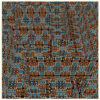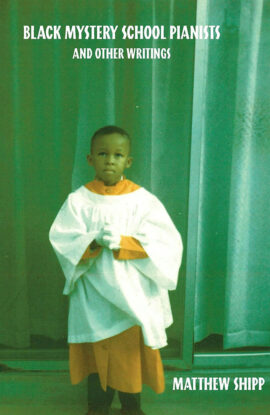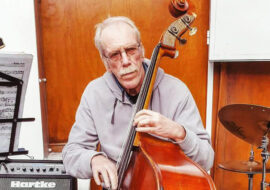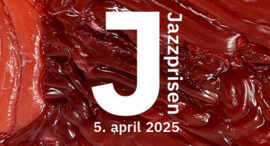
French experimental pianist-composer (and educator and marathon runner) Melaine Dalibert is known for his highly personal compositional strategies that experiment with algorithms and other mathematical concepts such as fractals. In his tenth album, the solo piano Eden, Fall, he focuses on the elasticity of our sensibility of time, its duration, and our relationship with time.
«Taking the time to be taken by it. Why not enjoy it for another moment after all? How long does a moment last? We wander along the thread of this idea. And then you end up wondering what it would be like to rush to our downfall but in slow motion?» Dalibert writes in his concise liner notes. He also quotes French philosopher Gaston Bachelard’s work The Dialectic of Duration (1936) which addressed the nature of time, taking issue specifically with Henri Bergson’s notion of duration, or lived time: «Our entire past also watches over our present, and it is because the self is ancient and deep and rich and full that it possesses a truly real action. Its originality comes from its origin. It is remembrance, not discovery».
Eden, Fall belongs to Dalibert’s Mind Travels Series that began with Shimmering (Ici d’Ailleurs, 2022). It offers three minimalist-ambient compositions penned with algorithms that – literally – take their time to express themselves, but with no use of computer or software. The opening, 37-minute «Eden» is based on a short phrase and comprised of the sparse and ethereal, resonant flow of piano waves (4233 pulsations, according to Dalibert count). Or as he describes it in his poetic language: «waves abound on the thread of an idea, in a brief precis of evanescence. Then the fall breaks the silence». And the sense of time slowly slows down and leaves us with a feeling of timelessness, mysterious yet tangible. It brings to mind the seminal work of Morton Feldman or the early ambient works of Brian Eno.
The second, short «Jeu de vagues» (game of waves) is also based on a short phrase played by the right hand, suggests a fleeting, harmonious drone, and serves as a «solstice at the border». The third and last, 14-minute «Fall» uses insistent, repetitive-percussive gestures that slowly and patiently evolve in a tight, Steve Reich-like manner or as a hypnotic mantra that almost freezes all sensibility of time and its irresistible pulse leaves us with an almost spiritual sense of emptiness, ready to start this fascinating sonic ritual all over again, just as the circle in the cover artwork suggests.
Eyal Hareuveni
Melaine Dalibert (piano)




































